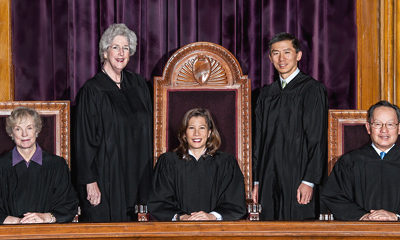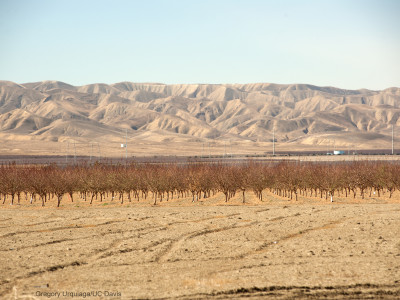Japan Removes Whaling from ICJ Jurisdiction
In a decision that surprised many, almost 18 months ago the International Court of Justice (ICJ) ruled that Japan’s whaling activities in the Southern Ocean were not justified under the International Convention for the Regulation of Whaling (ICRW). Japan’s Ministry of Foreign Affairs replied soon after that “as a state that respects the rule of law … and as a member of the global community, Japan will abide by the ruling of the court.” The ICJ decision and Jap...
CONTINUE READINGWhat Do You Know About EPA? Test Your Knowledge.
Much of what most people think they know about EPA is wrong.
This test involves a few basics about EPA. See how much you know. 1. What President established EPA? A. Kennedy. B. Johnson C. Nixon D. Clinton 2. When is cost a factor in issuing EPA regulations? A. Whenever allowed by law. B. Under Republican Presidents. C. Only for minor regulations. D. Never. 3. Why did EPA decide to regulate greenhouse gases? A. Because new scientific breakthroughs forced to do so?....
CONTINUE READINGCalifornia Supreme Court Continues to Expand Its Environmental Docket
Justices Considering Unprecedented Number & Variety of Environmental Law Issues
At the beginning of 2015, I posted on this site an analysis of the California Supreme Court's environmental law docket. My conclusion was that California's highest court was showing unprecedented interest in environmental law--as demonstrated by the fact that it then had pending nine cases arising under the California Environmental Quality Act (CEQA) and 20 pending environmental cases overall. One obvious question was whether that fact represented a one-time abe...
CONTINUE READINGAddressing Externalities: A Modest Proposal
How to make health and safety a personal priority for industry officials.
According to economists, firms have little reason to take into account the cost of externalities -- that is to say, the harms their activities may impose on others. The traditional solutions are damage remedies or taxes to transfer the financial cost to the industry, or regulation to force industries to limit their harmful activities. Why not try a more direct solution? Why not require owners and managers to expose themselves to the same risks? For instance, ...
CONTINUE READINGAir quality and wildfire
We may need to burn more to get less smoke
One of the impacts of California’s difficult fire season has been air pollution. Fires produce smoke. Large wildfires produce a lot of smoke. And large wildfires in the southern Sierra Nevada produce smoke in the southern Central Valley – the part of the United States that already has some of the worst air quality in the country. Moreover, because the southern Central Valley has a large Latino population and has a high poverty rate, the poor air quality dispropor...
CONTINUE READINGDueling California Drought Relief Bills Debated on Capitol Hill
Stark Differences Emerge Between Competing House and Senate Bills
What can and should the federal government do to assist the State of California in weathering the worst drought in recorded state history? While the U.S. House of Representatives is embroiled in a chaotic political debate over selection of a new House Speaker, the more deliberate consideration of new legislation continues apace in the Senate. Currently before the Senate Energy and Natural Resources Committee are two bill designed to provide federal relief for a...
CONTINUE READINGThe First Environmentalist Law Teacher
William Colby (1870-1964), a pioneering figure in the Sierra Club from Berkeley's past
I'm pretty sure that William E. Colby qualifies as the nation's first environmentalist law teacher, if only because environmentalism was very young at the time.. Colby was a lecturer on mining law and water law at Berkeley for twenty-one years, retiring in 1936. (That doesn't make him the first natural resources teacher; Judge Lindley had taught mining and water law before him.) Colby was a close friend of John Muir. He joined the Sierra Club in 1898 and, except...
CONTINUE READINGGaping Hole in EPA’s Methane Rules
Why don't EPA's proposed rules to reduce methane emissions apply to existing oil and gas facilities?
In August, EPA released proposed rules to reduce fugitive methane and VOC emissions from oil and gas operations. While this is a significant action in the fight against climate change, and much needed in light of the shale-driven national drilling renaissance, there is a gaping hole in the methane rules that has environmentalists worried -- the rules do not apply to existing sources. With only vague pronouncements to assuage the environmentalists' concern, we are lef...
CONTINUE READINGDuPont Found Liable In First of 3,500 Lawsuits
Chemical Used in Teflon Linked to Numerous Health Problems, but its Use is Still Legal Under TSCA
Yesterday, a jury in the Southern District of Ohio found DuPont liable for a woman's kidney cancer in the first of 3,500 suits the company faces. The cases all stem from DuPont's use and disposal of perflourooctanoic acid (PFOA) or C8. The chemical is used to make Teflon, among other things, and the most recent available data from the CDC suggests over 99% of Americans have detectable levels of C8 in our blood. DuPont used, and ultimately manufactured C8 at its Parker...
CONTINUE READINGLost in the Ozone Again
The Ozone Standard, Regulatory Pragmatism, and the Rule of Law
EPA issued a new regulation last week that mandates a reduction in ozone levels to 70 ppm from the current 75 ppm (originally set by the Bush Administration). The new regulation was immediately attacked by industry and environmentalists. According to industry, the regulation will be a job-killing burden on the economy. According to environmentalists, the Administration sold out to industry pressure for a second time, after previously killing an EPA effort to re...
CONTINUE READING









